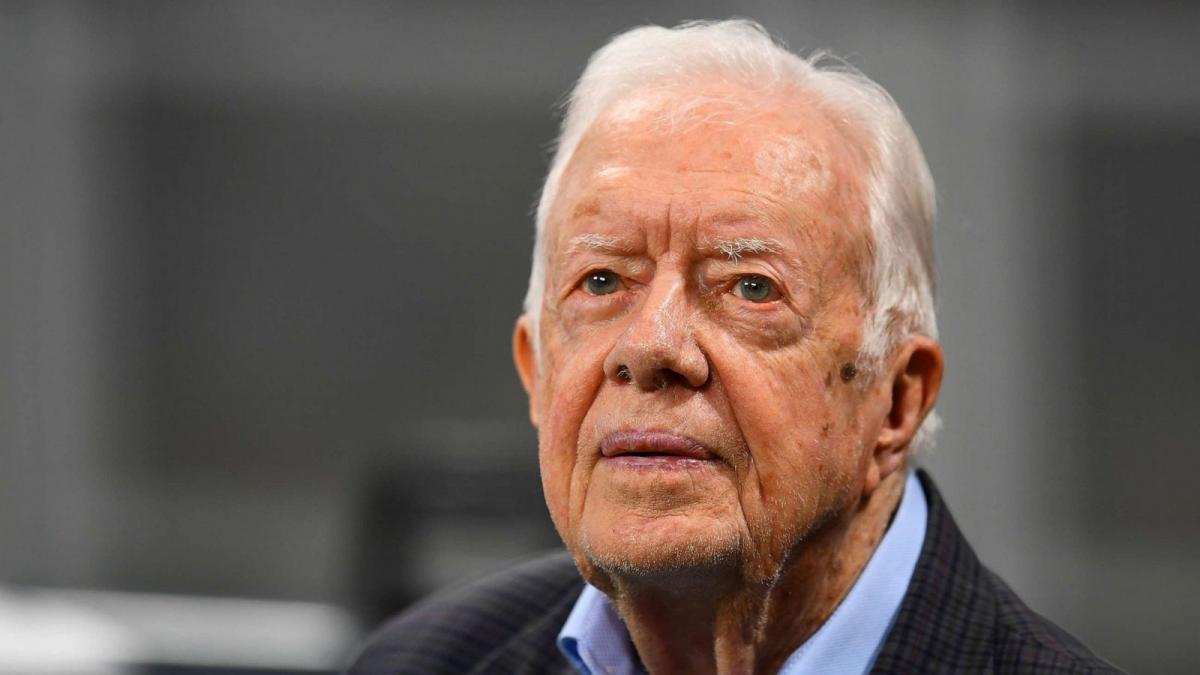Yesterday was President’s Day, and somewhat to my surprise, I found myself thinking not about Washington or Lincoln, nor about F.D.R., Kennedy, Obama, Biden or even you-know-who. I had Jimmy Carter on my mind.
Three days ago, Mr. Carter (who is 98 years old) chose to forgo any further medical intervention and to spend his remaining days at home with his family receiving hospice care. It’s a brave end-of-life decision by a man by a man who has devoted himself to public service and the well-being of others. He may have been a controversial President, but his post-Presidential years have been a beacon to us all.
I arrived in Washington in the spring of 1979. The Carter presidency was riding high after the success of the Camp David Accords which would eventually lead to the Treaty of Washington, the first peace treaty between Israel and one of its Arab neighbors. For ten days in September of 1978, President Carter had “jawboned” Egyptian President Anwar Sadat and Israeli Prime Minister Menachem Begin into signing two frameworks for peace that would set the stage for the eventual treaty that was signed at the White House on March 26, 1979. It was the beginning of hope.
Believe it or not, Washington is a pretty small town and that year, I found myself within two degrees of separation of President Carter. Nan Powell, wife of Jody Powell—Carter’s Press Secretary—worked in the DC Public School system and was my children’s kindergarten teacher. To this day, they revere her. Back then, it was heady stuff for the new kids in town.
There are, of course, two threads to Mr. Carter’s story: his Presidency and his post-Presidency.
The Panama Canal Treaty was, to say the least, controversial, and it wasn’t long after the success of the Egyptian-Israeli peace treaty, the jewel in the Carter Presidential crown, that Khomeini’s revolution arrived in Iran, and, with it, the fall of the Shah and the Iranian Hostage Crisis. That crisis eventually became the straw that broke President Carter’s back, and within a year, he had lost his bid for reelection to the highly telegenic and oratorically gifted Ronald Reagan. The post-Presidency of Jimmy Carter had begun.
Jimmy Carter was, in many ways, an enigmatic man. He was a nuclear engineer and US Navy veteran, but a peanut farmer at heart. He was deeply religious, but his faith was quietly personal, not photo-op public. In an age of ego, he was a truly humble man who, upon leaving the White House, worked with Habitat for Humanity, helping to build homes for others. His labor was sweaty, bandanaed, and tool-belted, with even a black eye and a few stitches, but he neither asked for, nor wanted, any public approbation for his days on the job. It was enough to be doing God’s work. He put it this way: “To be true to ourselves, we must be true to others.”
It seems that Jimmy Carter has only a few more days to live. May they be peaceful and filled with the love of his wife, family, and friends, and marked by gratitude from a nation he so faithfully served.
I’ll be right back.
Jamie Kirkpatrick is a writer and photographer who lives in Chestertown. His work has appeared in the Washington Post, the Baltimore Sun, the Philadelphia Inquirer, the Pittsburgh Post-Gazette, the Washington College Alumni Magazine, and American Cowboy Magazine. Two collections of his essays (“Musing Right Along” and “I’ll Be Right Back”) are available on Amazon. Jamie’s website is Musingjamie.net.




Chris Gordon says
Yesterday we celebrated the birthdays of Goerge Washington and Abraham Lincoln, two properly honored but flawed men. As a true role model for your children teach them about Jimmy Carter.
Debra Blanchfield says
Amen
Cl Ra says
Thank you for writing what so many of us are thinking, as we hold this gentle giant and his loved ones tenderly in our hearts.
Well done, Good and Faithful Servant
Paula Reeder says
Amen!
Becky Byrd says
Jamie, so very well said. He is quite a man,
Gerry_levin says
President Carter is one of the finest men around. May he have peace and love in his final days.